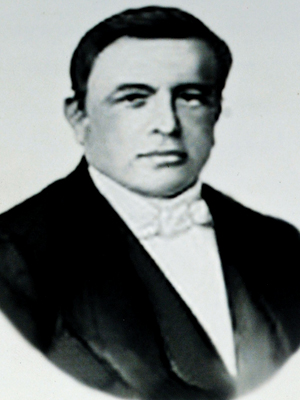
Mogling was born in 1811 in Brackenheim, Germany. A missionary associated with the Basel Mission who came to India with the primary objective of spreading Christianity, Mogling is remembered as the pioneer of Kannada journalism. July 1, the day ‘Mangalooru Samachaara’ was first launched, is celebrated as ‘Kannada Press Day’ throughout the state today.
The newspaper had a humble genesis. It was a four-page fortnightly carrying a mixture of local news tidbits, information on rules of the then government (East India Company), moral stories and even songs of Purandaradasa.
A look at the copy of the first issue of this landmark newspaper still available at the library of the city’s Karnataka Theological College at Balmatta, and one gets an insight into Mogling’s journalistic approach. In its very first issue, Mogling says that people generally spread things through word of mouth whereby the information loses its accuracy with every message passer, and hence presents the reasoning for bringing out ‘Mangalooru Samaachaara’ as a compact news information source for the people. In the same issue, he compares his novel newspaper concept to windows of a closed room which give insight into the outer world. What’s more, in the very first issue, Mogling invites people to give information and news as material for his paper assuring them that they would be published following verification of facts. Now that’s citizen journalism for you, way back in the mid-1800s!
Mogling interacted with the people of Karnataka and learnt the native Kannada language. Mogling said: “I find the Kanarese language both easy and difficult. I do not find it difficult to understand the written words, but the pronunciation will give me some hard time yet. I realize now that I have difficulties with speaking foreign languages. I have never noticed that before. What a demanding task to give up a guttural R so late in life and instead learn the R spoken here, which is produced by a fluttering of the tongue. Let the brothers of Tubingen also know that knowledge of Sanskrit is an important preparation for the study of all these languages” (Ref: ‘Hermann Moegling’ by Dr. Hermann Gundert).
And he did learn Sanskrit prior to learning Kannada. He learnt the ancient Indian language while in his stay at Basel itself. It all happened after he came in touch with A N Grooves of England who had come there to take a few youngsters for the Calcutta mission. As days passed, Mogling came in contact with more missionaries from India. The Karnataka connection can be traced to the arrival of H Young, a judge who had come from Dharwad to place a need for missionaries in the South Maratha region before the Basel Mission committee. Mogling was chosen by the Committee along with two others and on December 6, 1836, he set foot on Mangalorean soil. Among the areas visited by Mogling in Karnataka are Madikeri, Dharwad and Belgaum, to where he shifted the publication of ‘Mangalooru Samachaara’ and renamed it as ‘Karnataka Samachaara’ in 1844.
Mogling came to India already equipped with knowledge of Sanskrit, Arabic and English languages. He knew the importance of English in India which is reflected in this quote of his, said in the context of spreading the message of Christianity to the people of Karnataka: “The next thing we have to do is setting up of an English school. As long as we are not able to preach, we cannot do any better for the salvation of this stray flock. A Christian language also seems to be the best means to prepare them for the Gospel”. (Ref: ‘Hermann Moegling’ by Dr. Hermann Gundert).
It is however, his contribution to Kannada language and literature that makes him an iconic figure in Karnataka’s history. ‘Mangalooru Samachaara’ apart, Mogling enriched Kannada literature with works such as ‘Iraru Patragalu’ (twelve letters), ‘Rajendra Naame’ (containing valuable information on Coorg), translation of John Bunyan’s ‘Pilgrims Progress’ into Kannada titled ‘Yatrikana Sanchara’, and one of his more important works ‘Bibliotheca Carnataca’ wherein, he edited and published some Kannada classics such as ‘Jaiminibharata’, ‘Torave Ramayana’, ‘Dasara Padagalu (songs of Haridasa)’, ‘Haribhaktasagara’ of Kanakadasa, ‘Kumaravyasa Bharata’, ‘Basava Purana’, and ‘Chinna Basava Purana’. Dr. Srinivas Havanoor in his book ‘Hosagannadada Arunodaya’ states that Mogling’s works ‘Jaati Vichaarane’ and ‘Devara Vichaarane’ are modern Kannada’s first essays. Mogling composed Kannada songs too besides collecting about 3,000 Kannada proverbs. He translated 14 ‘Daasara Padagalu’ and a part of ‘Jaiminibharata’ to German as well.
One can feel Mogling’s impact at the Basel Mission Press and the campus of the Karnataka Theological College at Balmatta. On May 29 earlier this year, Mogling’s 200th birth anniversary was celebrated. On July 6, a bust unveiling ceremony will also be held at the College’s campus. “Because of him and the Basel Mission press coming into existence, it was possible for many handwritten manuscripts to be published and preserved. This has helped researchers immensely” says Dr. T R Sadanand, Director, Karnataka Theological Research Institute.
Mogling returned to Germany and passed away in 1881. But he continues to be remembered by Kannadigas in general and members of the journalism fraternity in particular, for his contributions to literature, printing and publishing innovations. Now that’s what you call “Moglingji toh ‘Chhaap’ chod gaye!”
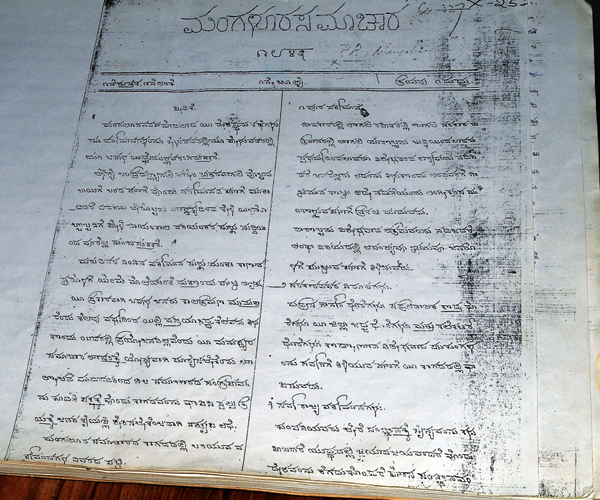
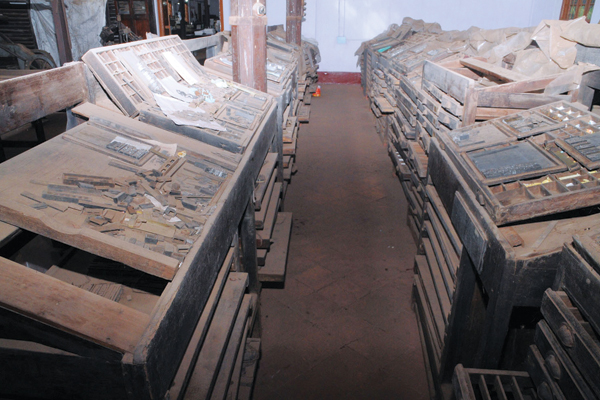
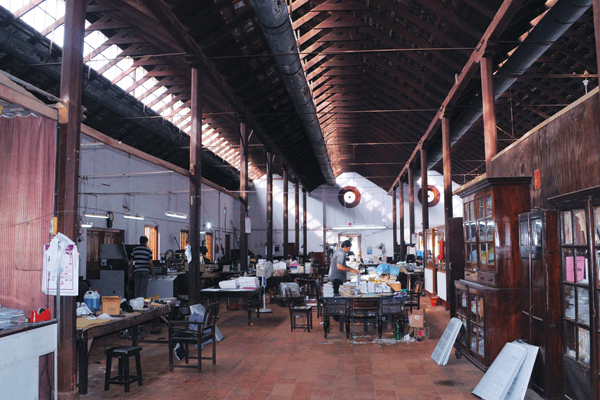
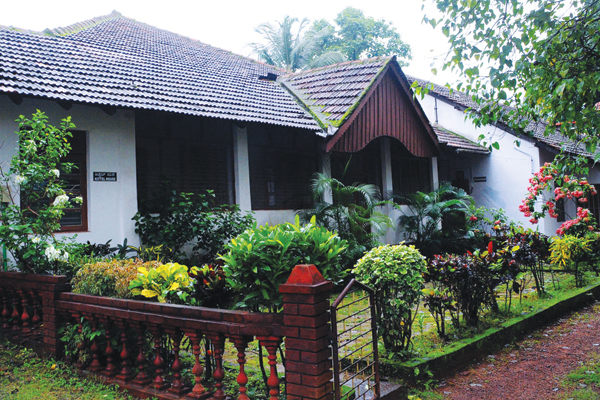
Photos: Ahmed Anwar




Comments
Add new comment